Dog Trainer Shares 8 Worst Mistakes Dog Owners Make

UK-based dog trainer Will Atherton, from Will Atherton Canine Training, has dedicated his life to helping dogs, and helping owners understand and get the best out of their pups. Even the most well-meaning dog owner may cause problems for their pets, if they don’t put the work in and train their dog so it lives its best life. Some mistakes are obvious—like neglecting to train small breeds—but some may be a complete surprise. Here are the 8 worst mistakes dog owners make that are undermining their dog’s happiness and causing long term issues, via Atherton and his YouTube clip.
RELATED: Dog Trainer Shares the 3 Dog Breeds He’d Never Own: “Hard Pass for Me”
1
Train small dogs, too.
Atherton says it doesn’t matter if you have a Great Dane or a Yorkie—training is non-negotiable.
“If you are not training your dog; if you’re not communicating with your dog; if you are not making your rules, boundaries, and expectations clear from a place of loving leadership, your dog will become anxious, frustrated, fearful, and confused, which is the root cause for 99 percent of problem behaviors,” he explains. “And that is applicable whether we’re looking at Chihuahuas or English mastiffs.”
2
Don’t compare your dog to other dogs.
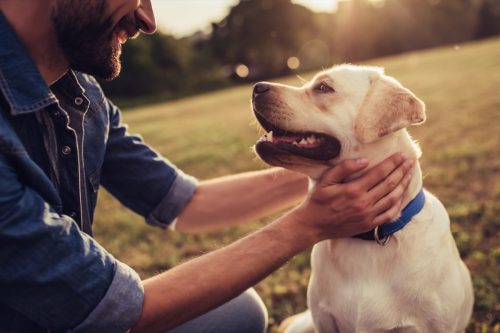
Atherton reminds pet owners that social media is not always an accurate representation of real life.
“If you are comparing yourself to the dogs you are seeing on social media, you are making a huge mistake,” he says. “ Are you going to be as good as competition dogs on social media? Probably not. Are those competition dogs as good as they look on social media? Let me let you into a secret. No, they’re absolutely not. They have just had that footage cherry-picked to look amazing.”
3
Approach rescue dogs calmly.
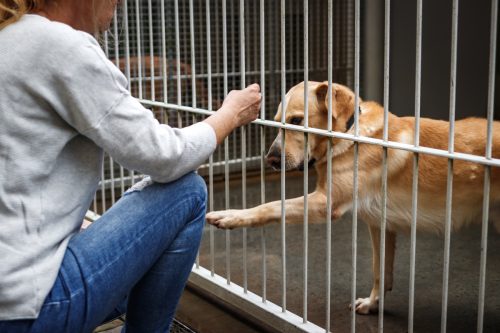
Atherton believes too much pity can undermine progress and training in rescue dogs.
“Don’t get me wrong, I absolutely do feel sorry for all rescue dogs and want to help all rescue dogs,” he says. “If I want to help this dog, the best way I can give confidence to this dog and help this dog move forward from the trauma in this dog’s life is by being a calm, consistent, loving leader, forgetting about her past and focusing on her future.”
4
Be a leader.
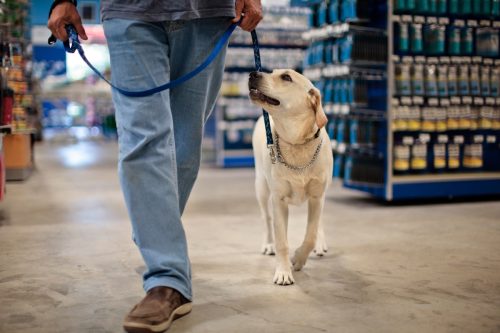
Atherton says being a good dog owner means more than just having affection for one’s pet.
“Far too many people think that they should just simply love their dog, but that is making a terrible mistake,” he explains. “Dogs crave leadership. And if they don’t have that leadership in their life, they feel that they have to make decisions for themselves. And when you put a dog in a position to have to make decisions for themselves, they become confused, fearful, and anxious, and they live in a constant state of fight or flight, and it’s no life for a dog.
“So, we need to clearly communicate to them what it is that we do want and what it is that we don’t want so that they can follow our loving guidance and direction,” he adds.
5
Avoid giving affection at the wrong times.
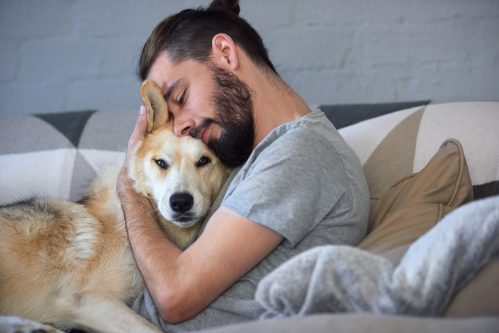
Atherton uses an example of a dog he is training to show why pets should only be praised when they are following instructions.
“You have to make sure that the only time you give this kind of praise and attention is when your dog’s doing something that you are happy with. This little girl is making an amazing job of my advanced leash handling course and is sitting nicely, quietly instead of jumping all over me. I’m very happy with that. So I’m giving praise and attention,” he shares.
“If she was jumping up on me and I was giving her praise and attention, I’d be rewarding and reinforcing the jump in rather than rewarding and reinforcing this kind of calm,” he notes. “So remember to give attention at the right times, not the wrong ones.”
6
Don’t let your dog make too many decisions.
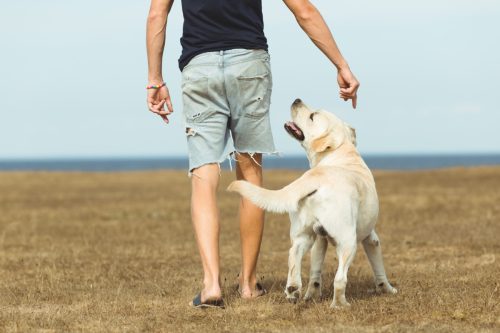
Atherton says dogs should not be left to make their own decisions, as it’s setting them up for failure.
“Now, don’t get me wrong, we don’t want robots, and we don’t want to give them militant levels of control every single day, but there is a time and a place,” he says. “If you are in a situation where you need your dog to behave, you need your dog to look up to you for guidance and direction, then that is exactly what your dog should be doing.”
“And to do this, you need to utilize your leash-handling skills and your obedience,” he points out.
7
Avoid one-size-fits-all training.

Atherton says you shouldn’t train different dogs in exactly the same way.
“Every single dog is different, and from breed to breed, there are huge differences,” he says. “Even within the same breed, you will see a wide variety of temperaments, characteristics, and behaviors. And therefore, you must have a bespoke way of dealing with every dog as an individual to honor that dog, to honor who that dog is, and to make sure that we’re working with that dog rather than constantly in conflict with that dog.”
8
Respect your dog’s comfort zone.

Atherton says some people push their dogs too far, too soon.
“When it comes to training a dog, a huge mistake that people make is not understanding their dog’s comfort zones,” he says. “And even if they do understand the comfort zones, making the mistake of either never pushing them out of their comfort zone or pushing them too far out of their comfort zone, it’s a constant balancing act that you have to work with your dog or the dog that you are working with to help them build confidence, build communication, and build your relationship.”